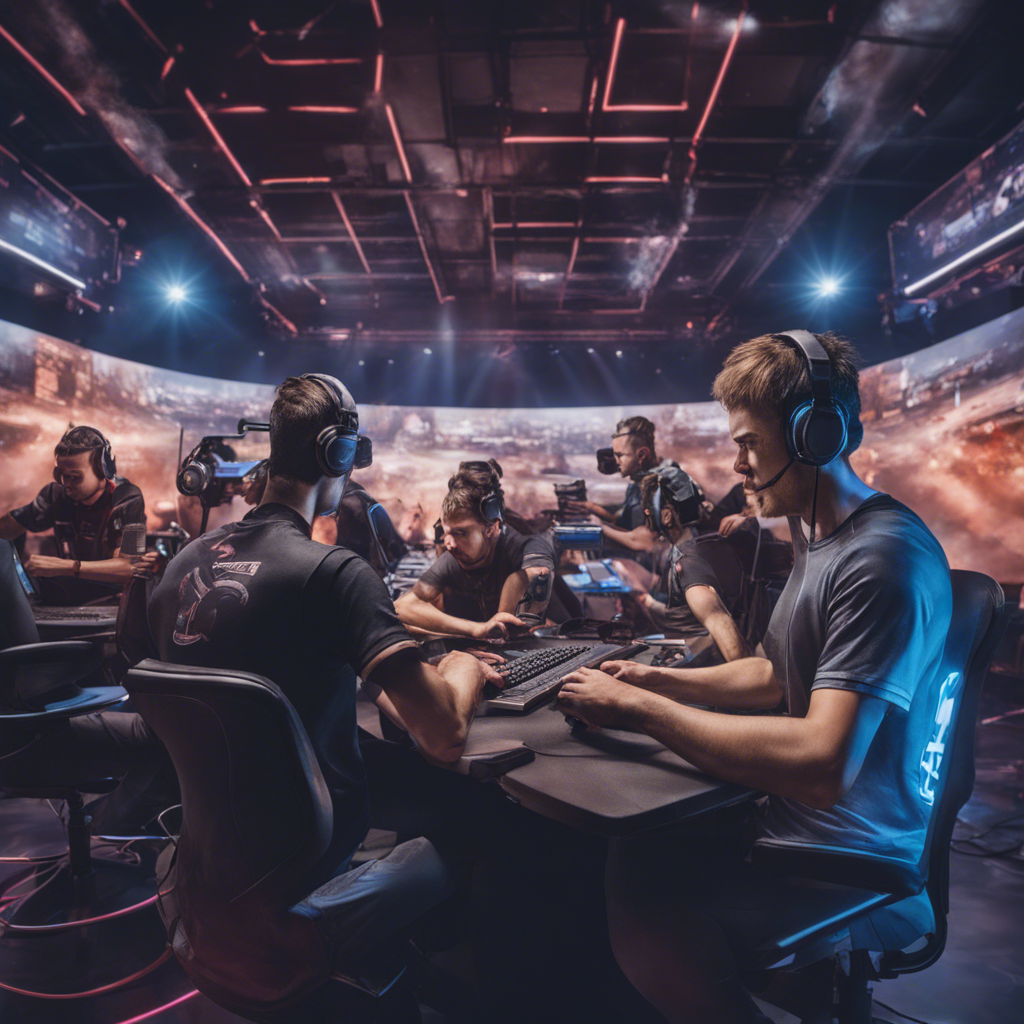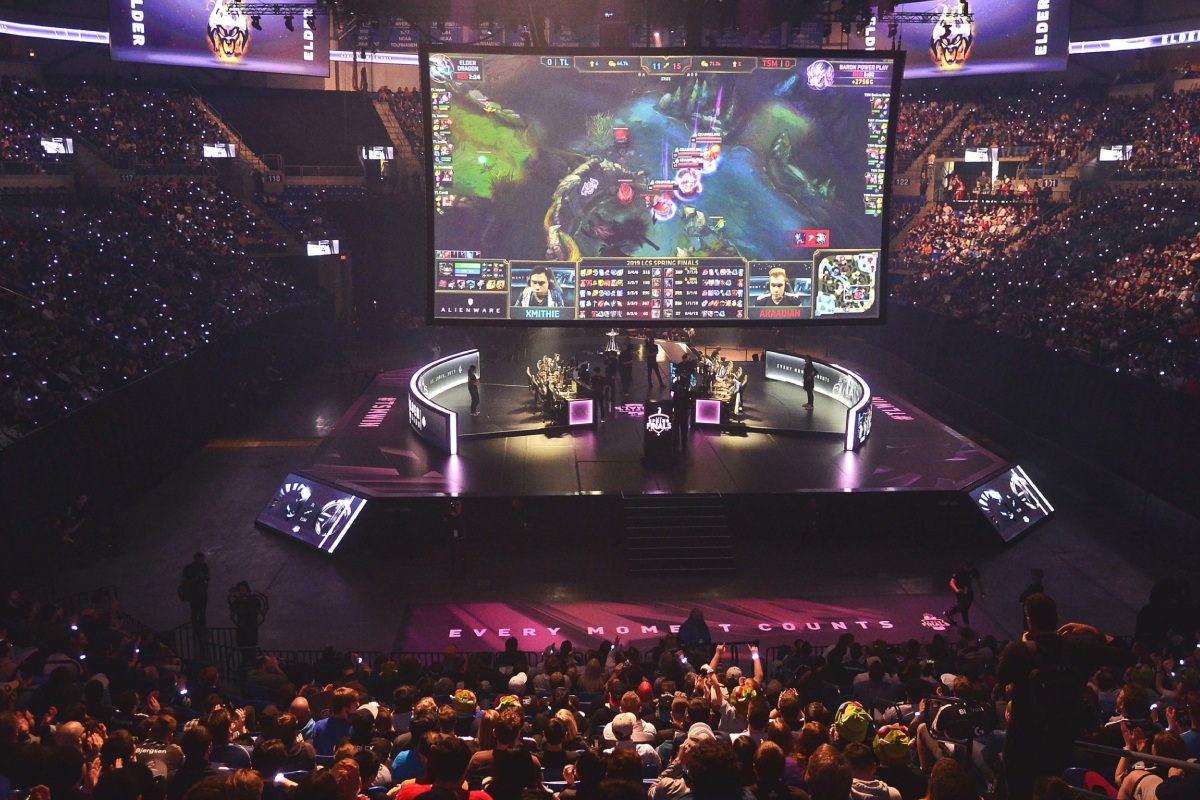The World Of Competitive Gaming: Exploring The Rise And Impact Of Esports
The World of Competitive Gaming: Exploring the Rise and Impact of Esports
Related Articles: The World of Competitive Gaming: Exploring the Rise and Impact of Esports
Introduction
In this auspicious occasion, we are delighted to delve into the intriguing topic related to The World of Competitive Gaming: Exploring the Rise and Impact of Esports. Let’s weave interesting information and offer fresh perspectives to the readers.
Table of Content
The World of Competitive Gaming: Exploring the Rise and Impact of Esports

The realm of competitive gaming, often referred to as esports, has transcended its humble beginnings as a niche hobby and evolved into a global phenomenon, captivating millions worldwide. This article delves into the multifaceted world of esports, exploring its origins, core elements, diverse formats, burgeoning industry, and the profound impact it has on society.
Understanding the Foundation of Esports
Esports, at its core, represents the competitive playing of video games, with participants striving for victory and recognition. This competitive spirit, ingrained in human nature, finds a fertile ground in the digital world, where players can test their skills, strategies, and reflexes against others in a structured and often thrilling environment.
The Evolution of Esports: From Humble Beginnings to Global Phenomenon
The genesis of esports can be traced back to the early days of video gaming, where enthusiasts would gather in arcades and computer labs to challenge each other. Games like "Space Invaders," "Pac-Man," and "Street Fighter II" served as early battlegrounds for competitive play. However, the emergence of the internet and the rise of online gaming platforms in the late 1990s and early 2000s propelled esports into the mainstream.
The first organized esports tournaments, featuring prize pools and dedicated spectators, emerged in the early 2000s. Games like "StarCraft" and "Counter-Strike" became synonymous with competitive gaming, attracting dedicated players and audiences. This period witnessed the birth of professional esports organizations, dedicated to fostering talent and providing infrastructure for competitive play.
The Rise of Esports as a Global Industry
The 21st century has witnessed an exponential growth in the popularity and reach of esports. The advent of high-speed internet, streaming platforms like Twitch and YouTube, and the development of sophisticated gaming titles specifically designed for competitive play, have fueled this growth.
Esports has transitioned from a niche hobby to a major global industry, attracting significant investment from sponsors, broadcasters, and media companies. Major sporting events like the Olympics have even begun to acknowledge esports as a legitimate form of competition.
The Diverse Landscape of Esports: Exploring Different Formats and Genres
The world of esports is incredibly diverse, encompassing a wide range of gaming genres and formats. From real-time strategy games like "StarCraft II" and "League of Legends" to first-person shooters like "Counter-Strike: Global Offensive" and "Call of Duty," esports offers a variety of competitive experiences.
Popular Esports Genres:
-
Real-Time Strategy (RTS): Games like "StarCraft II" and "Age of Empires" require players to manage resources, build armies, and outmaneuver opponents in real-time.
-
First-Person Shooters (FPS): Games like "Counter-Strike: Global Offensive" and "Overwatch" focus on fast-paced, action-packed combat, emphasizing precision aiming and strategic teamwork.
-
Multiplayer Online Battle Arenas (MOBAs): Games like "League of Legends" and "Dota 2" involve two teams battling for control of a map, with players controlling unique characters and working together to achieve victory.
-
Battle Royale: Games like "Fortnite" and "PUBG" pit a large number of players against each other in a last-man-standing scenario, demanding survival skills, resource management, and strategic decision-making.
-
Fighting Games: Games like "Super Smash Bros. Ultimate" and "Tekken 7" focus on one-on-one combat, requiring precise execution of combos and knowledge of character matchups.
Esports Formats:
-
Tournaments: Single-elimination or round-robin tournaments, often with a large number of participants, culminating in a champion.
-
Leagues: Regular season matches, followed by playoffs, culminating in a champion.
-
Ladders: Ranked systems that allow players to compete against each other and climb the ranks based on their performance.
The Importance of Esports: Exploring the Benefits and Impact
Esports is more than just a form of entertainment; it offers a plethora of benefits and impacts both individuals and society at large.
Benefits for Individuals:
-
Enhanced Cognitive Skills: Esports requires players to develop strategic thinking, problem-solving, decision-making, and quick reflexes.
-
Improved Teamwork and Communication: Many esports titles require players to collaborate effectively, communicate clearly, and coordinate their actions.
-
Increased Discipline and Focus: Esports demands dedication, practice, and a high level of concentration, fostering discipline and focus in players.
-
Opportunities for Career Development: Esports has created numerous career paths, ranging from professional players and coaches to content creators, analysts, and event organizers.
Impact on Society:
-
Promoting Digital Literacy: Esports encourages engagement with technology and promotes digital literacy, essential skills in today’s world.
-
Bridging Cultural Gaps: Esports transcends geographical boundaries, bringing together players and audiences from diverse cultures and backgrounds.
-
Creating New Forms of Entertainment: Esports provides a unique and engaging form of entertainment, attracting a growing audience and fostering a vibrant community.
-
Boosting Economic Growth: Esports is a rapidly growing industry, generating revenue and creating jobs in various sectors.
FAQs about Esports:
Q: What are the differences between esports and traditional sports?
A: While both esports and traditional sports involve competition and skill, they differ in several key aspects. Esports is played in a digital environment, with players utilizing controllers, keyboards, and mice, while traditional sports involve physical activity and specialized equipment. Esports also often features a greater emphasis on strategy and teamwork, while traditional sports may prioritize individual athleticism.
Q: How can I get involved in esports?
A: There are numerous ways to engage with esports, depending on your interests and skills. You can become a professional player, join a team, participate in tournaments, watch streams, create content, or even pursue a career in the esports industry.
Q: What are some of the most popular esports games?
A: Some of the most popular esports games include "League of Legends," "Dota 2," "Counter-Strike: Global Offensive," "Fortnite," "Call of Duty," "Overwatch," and "Apex Legends."
Q: Is esports recognized as a legitimate sport?
A: While the debate surrounding esports as a "real" sport continues, it is increasingly recognized as a legitimate form of competition. Many organizations, including the International Olympic Committee, have acknowledged esports as a growing phenomenon with significant cultural and economic impact.
Tips for Engaging with Esports:
-
Choose a game that interests you: Explore different esports games and find one that aligns with your preferences and skills.
-
Start practicing: Dedicate time to practice and improve your skills in your chosen game.
-
Join a community: Connect with other players, watch streams, and engage in online forums to learn from others and build a network.
-
Stay informed: Follow esports news, watch tournaments, and keep up with the latest developments in the industry.
-
Consider a career path: If you are passionate about esports, explore the various career opportunities available in the industry.
Conclusion:
Esports has evolved from a niche hobby into a global phenomenon, captivating millions worldwide. Its impact extends beyond entertainment, fostering cognitive skills, promoting digital literacy, and creating new career opportunities. As esports continues to grow and evolve, its influence on society is likely to become even more profound, shaping the future of entertainment, technology, and competition.


.png)
.jpg)




Closure
Thus, we hope this article has provided valuable insights into The World of Competitive Gaming: Exploring the Rise and Impact of Esports. We appreciate your attention to our article. See you in our next article!